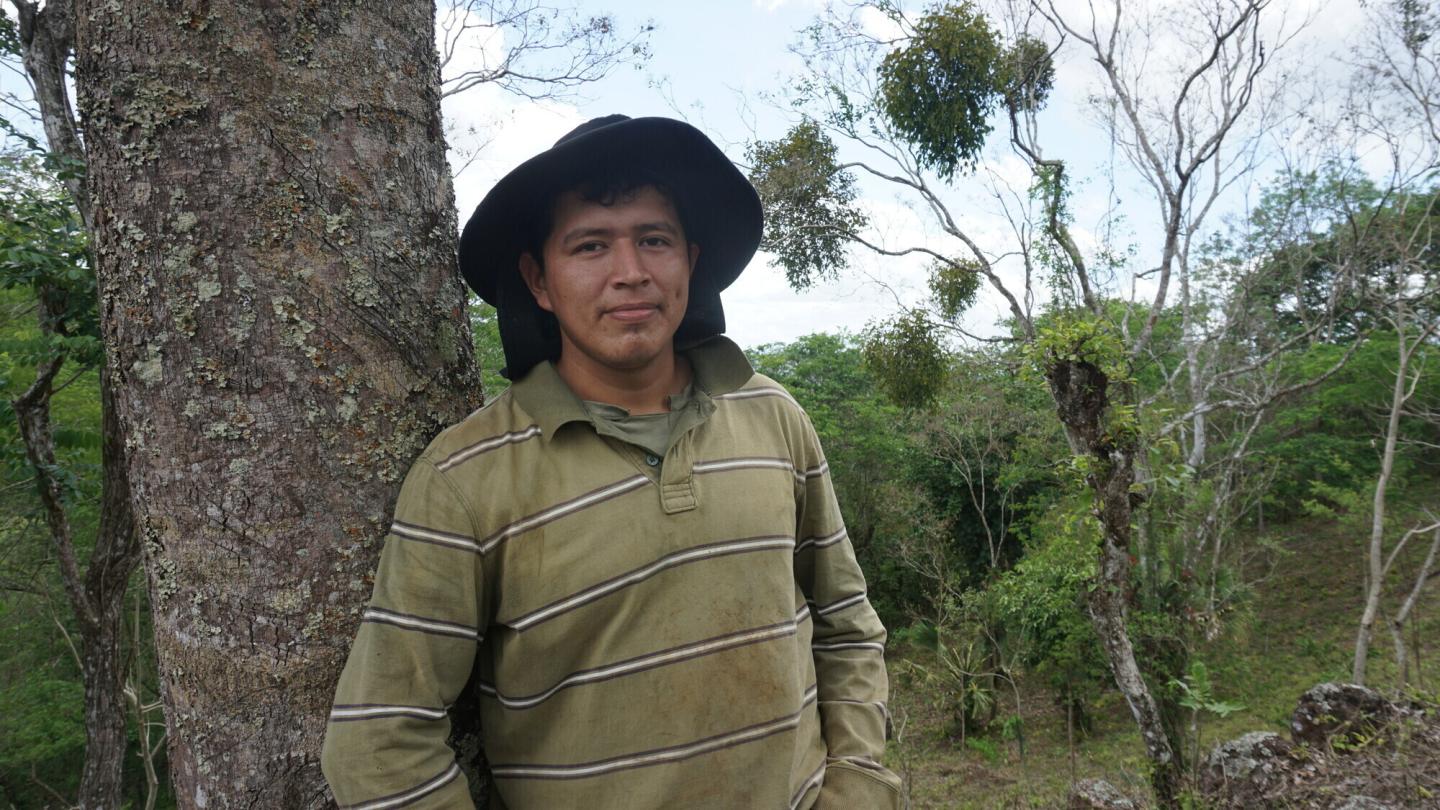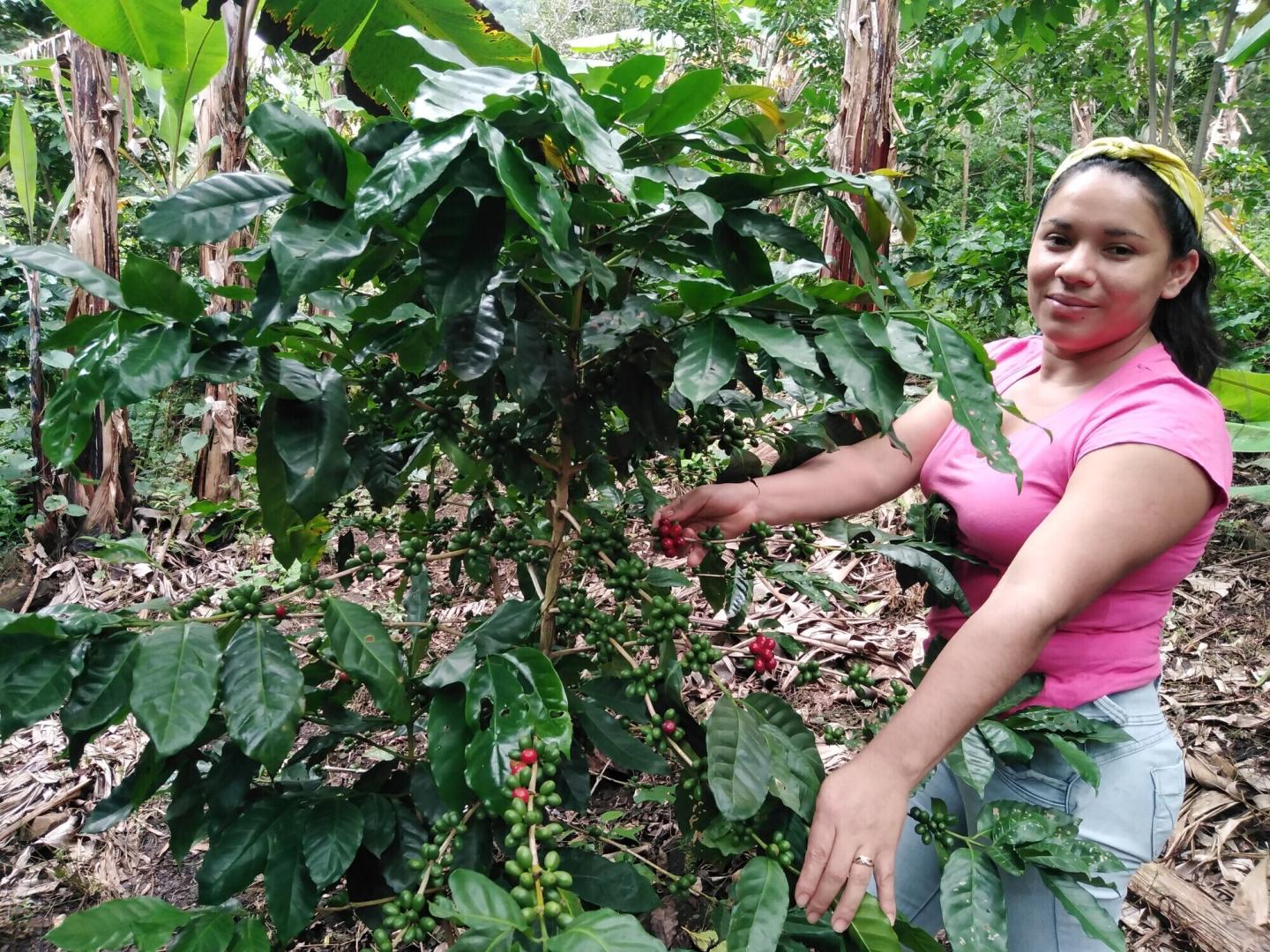Finding hope in buzzing and laughter
In Nicaragua, young entrepreneurs improve income and strengthen community relationships

What’s that buzzing sound you hear on the hillsides of Boaco, Nicaragua?
That would be 100 hives of bees that are helping Marcelo Paz García, his father and two brothers make an income. García’s profit helps him eat healthier food and pay for university classes.
Those honey-makers produce 66-gallon barrels of the golden nectar that sell for $820 each. In a year García and his family can sell 21 barrels, bringing in more than $17,000. After paying expenses and building more hives, they are left with a modest monthly income, he says.

Their business has more than doubled from the 40 hives they had in 2019 when García took a small business and finance training for young adults from Asociación Cristiana de Jovenes de Nicaragua (ACJ-YMCA), a Mennonite Central Committee partner.
As part of that training, he could join a community savings and loan group, where he took out a low-interest loan. The money comes from people in his community, García included, who have decided to save money over a period of time and then lend it to each other.
And that’s not the only buzz.
Participation in the savings groups builds relationships throughout the community, said Derrick Charles, MCC representative for Honduras and Nicaragua with his wife, Rebekah Charles from Lancaster, Pennsylvania.
“In addition to having more options for financial stability,” he said, “other angles that are really important to us include the innovation and creativity at work, and the community collaboration.
“These are new ways of working together in these communities. They meet regularly and define their own rules for how their group will run. They talk through what they're doing with their businesses and support one another's initiatives. The number of people participating in these groups has grown significantly in these recent years.”
The groups also try to take the sting out of community member’s urgent needs. Each of the savings and loan groups sets aside part of the money to help with crises, such as funerals, sickness or even hurricane losses.
A primary goal of ACJ’s work is empowering young women to become community leaders and manage their finances. Meylín Mayorga, 32, is among over 1,000 participants in 46 savings and loan groups that were developed since ACJ-YMCA started the program in 2018.

Mayorga was inspired to add coffee growing to her existing catering business after she took the business training.
She created a business plan, took out a loan from the community group and cultivated a neglected 1.5-acre field she owned. Now, she can use the $1,700 she earns each year from selling coffee beans to help pay household bills.
“What helped me more than anything was the part where they trained me on inventories, budgets and earnings because everything has a process,” Mayorga says.
“Now, I write down everything from weeding to cutting coffee and sales from coffee. Now I know what I invest and what I earn. I do the same thing with my food.”
As a leader in the savings and loan group, she has persuaded many people to join. “I like the fairness,” she says. “We are all treated equally. The interest on the loans is manageable, and the other things I like is that thanks to that, I am better with numbers.”
Mayorga's friend, Dina Angulo, 31, had a small business of buying and selling clothing, but it wasn’t very profitable. Through the training, she learned to save money each month instead of taking out high-interest loans when she and her husband needed extra money.

After contributing to the savings and loan group for one six-month savings cycle, Angulo used her savings and took out a loan to buy clothing in bulk. This way she would increase her inventory at a lower price.
“My business is improving little by little, and it helps me a lot,” she said, noting profit of about $90 per month. After putting some money in savings, she has money to pay for her son’s education and to contribute to the cost of food and other household supplies.
Growing her business would have been much harder without the encouragement of the trainers, she said. “I’m also glad because thanks to my little business, I don’t have to be asking my husband (for money),” Angulo said.
During a recent visit to a savings and loan group in Boaco, a sound other than bees caught Charles’s attention.
“It was great to hear them laughing together. There’s a great energy and bond among the group. With the pandemic and lots of challenging circumstances that they been through, it was really encouraging.”
Buzzing and laughter. Don’t they sound a lot like hope?

